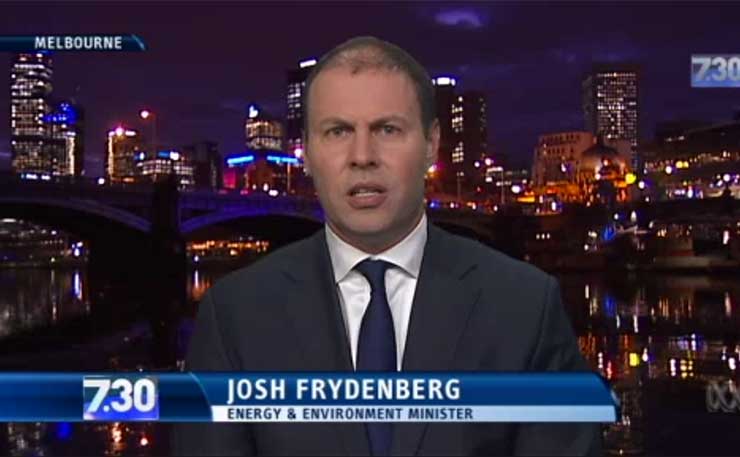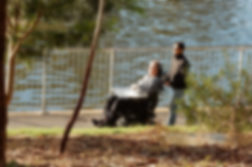Our society is getting more unequal, but not, apparently, if you get your news from government ministers and press releases. Jeremy Poxon from the Australian Unemployed Workers’ Union
While our (current) Treasurer beats his chest about the LNP’s elite economic management, and shrewd culling of the welfare budget, new revelations continue to surface about the appalling rise of poverty and inequality in this prosperous country.
We’ve learned that the gap between Australia’s richest and poorest is the highest its been in over three decades. We’ve learned that long-term unemployment has grown to over 175,000 nationally. And, just this week, we’ve learned that the number of older Australians on Newstart (and subsisting on $39/day) is growing by 10,000 each year.
It’s difficult to square this miserable snapshot of the state of our society, with the sunny narrative about “jobs and growth” that everyone in government is seemingly obliged to wheel out. Perhaps this is why, in their budget pressers, the Coalition doesn’t actually bother.
Instead, the government concentrates all focus on their (scare quotes) “successes”: proudly proclaiming that they are winning the war against “welfare dependency” and are smashing employment records. The LNP simply neglects to mention that any problems or economic failures – like, say, rising poverty, homelessness or unemployment – even exist.
There’s a striking discrepancy between government’s preferred narrative of a “strong,” “dynamic” economy and the troubling economic conditions many job seekers and welfare recipients actually face. Under the Coalition’s watch, Australia now has one of the highest rates of underemployment in the OECD. Our jobless poverty rate is the second-worst in the OECD. And, according to the latest batch of ABS data, there are currently 16 job seekers for every position available. Overall, our economy is failing to provide enough work – and a decent standard of living – for an alarming number of Australians.
Given all this, you’d think it would’ve been easy enough for our new golden boys, Josh Frydenberg and Scott Morrison, to at least feign some concern for all the people struggling under their stewardship. In the face of increasing public pressure to #RaisetheRate, they could take a leaf out of the Labor playbook and promise to conduct some non-committal “root and branch review” of the lowly Newstart entitlement. Alas, the LNP don’t even bother making any empty promises to address rising inequality and poverty.
Rather than communicate in shallow, placating gestures, the Coalition’s messaging is steeped in denial and magical thinking. A willingness to believe that jobs are plentiful (when they’re actually severely lacking); that cutting people off welfare will help them thrive (when it’s doing the exact opposite); that it’s actually quite easy to survive on $40 a day (where do you even start?). It seems critical to the coalition’s narrative, and chances of re-election, to deny that anyone under its watch could possibly be struggling, no matter how out of touch or absurd it sounds.
Despite the routine criticisms from progressives and advocates that this government is ignorant or “out of touch,” the “see no poverty, speak no poverty” strategy has gone down reasonably well with the general public. Last May, according to a Guardian Essential Poll, only 28% of people said they disapproved of the Coalition’s budget. Perhaps there’s something to be said for this government’s cunning mix of absolute denial and cock-sure optimism.
Frydenberg’s latest budget boasts, as with most Coalition rhetoric, is fuelled by the feel-good myth of job creation – which would have us believe that there are ample opportunities being created for everyone in our economy. It presents a fairy-tale vision of the “fair-go” Australia, where everyone can thrive if they’re motivated enough to get their arses off the streets, and out of the welfare queue.
Here, government skilfully recasts poverty as failure of individual will: that the poor’s only barrier to employment, and a decent life, is their idleness and “over-dependence” on handouts. By overselling the strength of the labour market, government can justify these personal attacks on the poor, and continue making cuts to social security in order to ‘unburden’ the budget.
Ultimately, the Coalition’s rhetoric tells a very comfortable narrative for a very comfortable class. If people are unemployed, it’s because they’re bludging; if people are homeless, it’s because they’ve made some bad individual choices; if people are rich and successful, it’s because they’ve worked hard and deserve to be. A reassuring vision of a fair, egalitarian Australia is planted firmly in our minds, even as we scroll past new appalling poverty statistics and Newstart horror stories in our social media feeds.
Maybe it’s no wonder then that many more people approved of the latest Budget than disapproved of it (at least according to the Guardian Essential Poll data). Better to believe the Coalition’s ideal of a strong, stable economy than deal with a harsher reality which could arouse icky feelings like shame and guilt.
This way, we don’t have to examine the failures of ourselves or our society. We don’t have to confront or change troubling things if they don’t actually exist.
It may be tough to admit, but this kind of denial and indifference to harsh realities isn’t unique to Canberra; rather, it’s woven into the very fabric of our social and personal lives. As individuals, we routinely brush aside unpleasant realities – like, say, the homeless panhandler asking for change – because we’d rather not endure the discomfort of the encounter. The easiest way to deal with a problem like homelessness or structural unemployment in our everyday lives is to simply walk past it, scroll past it, ignore it.
As individuals, much like as a nation, sometimes it really is just easier for us to see no poverty and speak no poverty.
Donate To New Matilda
New Matilda is a small, independent media outlet. We survive through reader contributions, and never losing a lawsuit. If you got something from this article, giving something back helps us to continue speaking truth to power. Every little bit counts.




